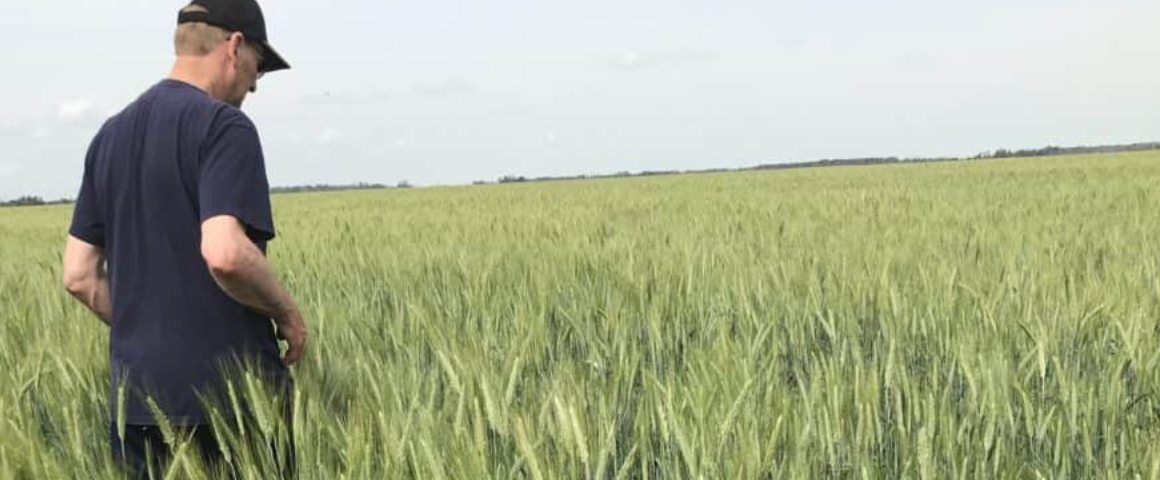By Jeremy Abbott
The National Farmers Union Region 7 (Alberta) Convention took place on August 3-4 and brought into focus several struggles that are facing farmers and food security in Alberta.
The convention was held in the Peace River region in northern Alberta, where residents and communities have been displaced due to frequent forest and grass fires burning out of control. During the convention there was an eerie reminder of this crisis as three counties surrounding Peace River were alerted of an encroaching wildfire, with residents receiving evacuation orders. The fires could be seen from the convention site.
Among the resolutions passed at the convention was one on solidarity with Cuba which called on the NFU to organize a brigade to participate in a tour of Cuba’s agricultural production. Another resolution pressed provinces to cease investments into military spending and to divert that same money into food security programs. Delegates also called for Alberta to stay in the Canadian Pension Plan, with consideration for the future of agriculture and farmers’ financial security in their senior years.
The convention provided some special presentations. These included one on the need for a national seed program which opposes the pharmaceutical and agribusiness monopolies on GMO seeds, and one on the impacts for farmers and ranchers in southern Alberta of the Grassy Mountain coal mine development.
Delegates shared their sentiments about how devastating the United Conservative government has been for farmers, and they spoke of the negative impact of both oil extraction and agribusiness companies which dominate the market. They also expressed solidarity with the Woodland Cree First Nation which recently reached an agreement in their resource and land dispute with the Obsidian Energy corporation in Peace River County. Convention participants determined that the NFU needs to bring rural issues of food supply to the forefront of political issues in Alberta.
The importance of protecting soil balance and protection of waterways were key messages shared by the local farmers in the region. A cattle rancher from southern Alberta discussed the issue of foreign investment in feedlots and how this drives up costs for smaller ranchers, outcompeting and encroaching on their ability to sustain their operations.
In northern Alberta oil extraction and development is a continual process, not only in the open tar sands but in fracking as well. NFU Board member Peter Eggers, who hosted the convention on his farm, described the harm that “low impact” pipeline installation causes on topsoil, using property he leases as an example.
Topsoil takes thousands of years to develop the organisms and bacteria cultures necessary for healthy plant growth. When topsoil is removed from the land, it is not taken evenly and in best case scenarios part of it will mix in with lower layers of soil which do not foster the same bacteria growth. Contractors often do not know how to properly extract soil, and frequently miscalculate the depth of soil to extract. This leads to decreases of up to 50 percent in overall soil health, which lasts for multiple generations.
Furthermore, the UCP government removed farmers’ ability to have a court hearing which used to provide a legal basis for their disputes. Now, oil companies merely need to provide a report explaining their intentions with the land and the profit they can extract from it, and the Minister of Energy signs off with little recourse for farmers and land holders.
Pipelines last between 10 and 50 years, whereas soil health takes centuries to develop. After pipelines are decommissioned, they remain in the ground and their decomposition changes water flow of ground water systems. This impacts larger areas of fields as it funnels water along the pathways where the pipe was placed. There is a need for better consultation of farmers who live and work off the land. This is especially important now, as waterways are at risk of collapsing, pollution is causing major health issues for people living near oil wells, and forest fires are raging in northern Alberta every summer.
The convention also discussed the changing prairie population, with more young people moving the urban centres, and how this has changed the dynamics of the NFU membership. There remains a need for an organization of farmers who can come together and speak for themselves, but this must be paired with adjusting to the population trends. More consideration needs to be given to starting up urban farms and organizing farm workers, to build a foothold of members from which the NFU can advocate from across Alberta.
[Photo: NFU]
Support working-class media!
If you found this article useful, please consider donating to People’s Voice or purchasing a subscription so that you get every issue of Canada’s leading socialist publication delivered to your door or inbox!
For over 100 years, we have been 100% reader-supported, with no corporate or government funding.




